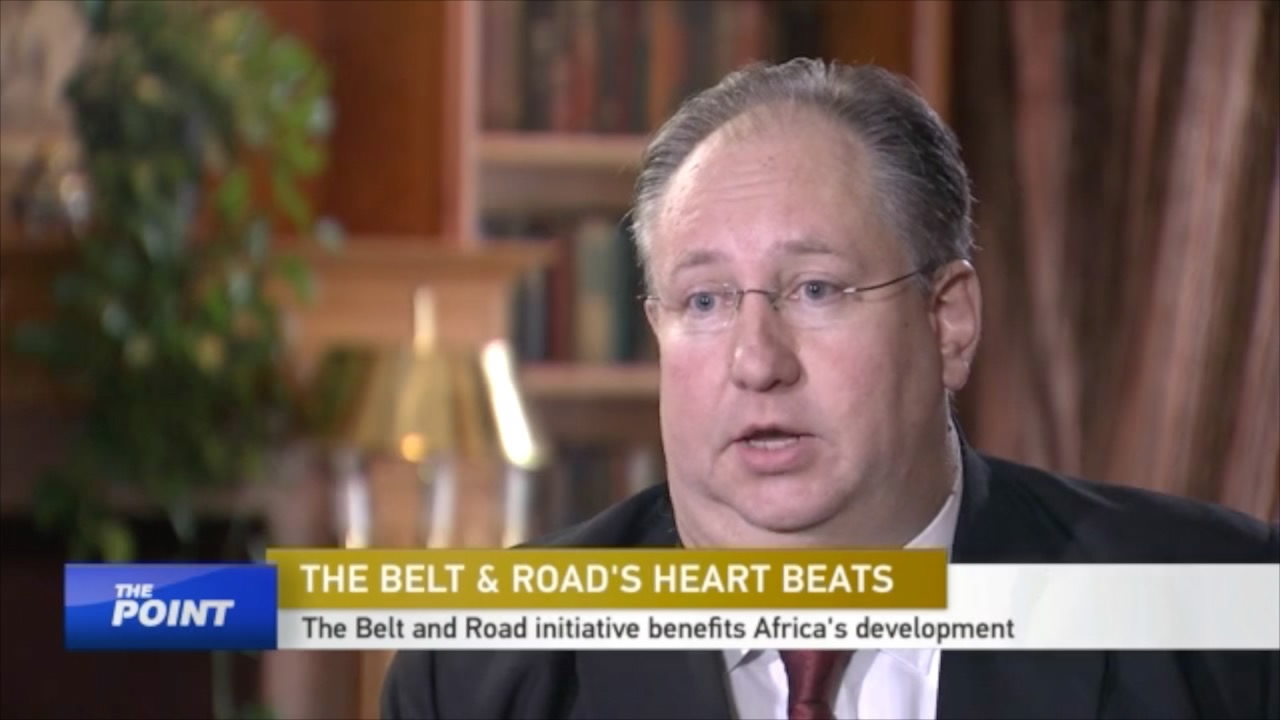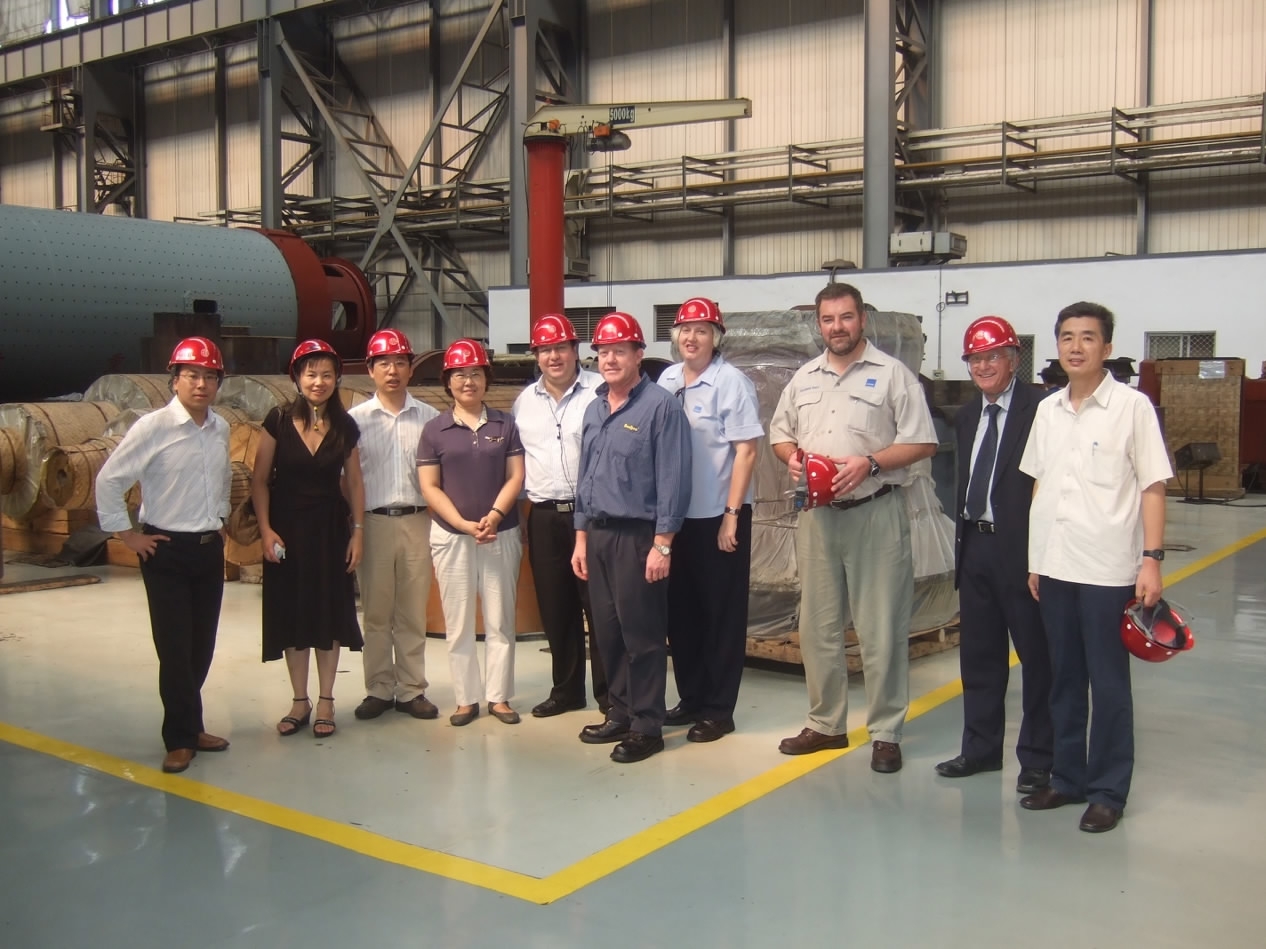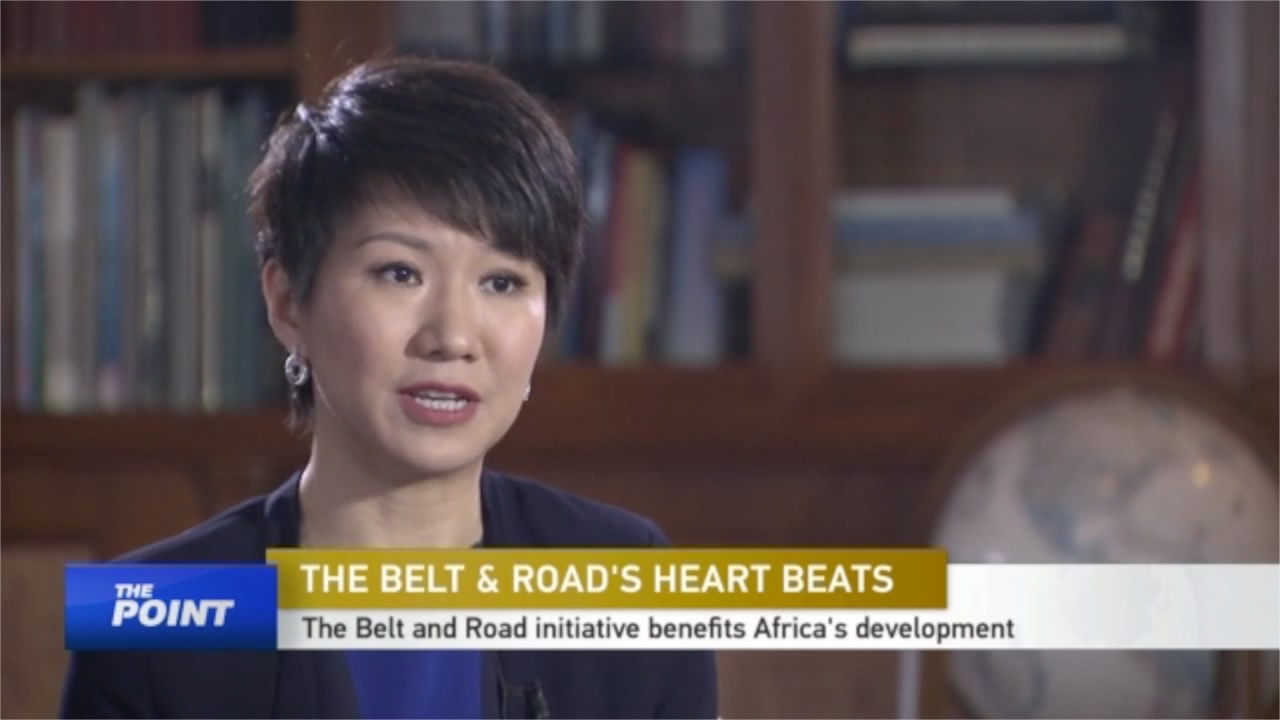
Business
18:49, 10-May-2017
S. African entrepreneur: Belt and Road benefits Africa’s development

By CGTN’s Tian Ye
The Point with Liu Xin is running a new series: "The Belt and Road's Heart Beats". The sixth episode invites Kobus van der Wath, the founder and CEO of The Beijing Axis, to speak about the Belt and Road Initiative and the opportunity that it presents.
Van der Wath is a South African businessman based in Beijing. 15 years ago, China’s dynamism and opportunity for business attracted him to relocate here. He is happy to be part of the fantastic journey of China’s integration into the global economic system.

“Once that happens, you need to know you are already too late if you haven't moved yet. Because things would accelerate, and you need to keep pace,” said Kobus during an interview with CGTN, explaining how he started paying serious attention to the Belt and Road Initiative around a year ago.
He cites the opportunity to extend his company's reach to previously unchartered territories along the route, as well as the chance to leverage relationships with Chinese partners in these same territories, as the major reasons why Belt and Road is on his radar.

Kobus van der Wath (L-5), along with colleagues from The Beijing Axis, accompanies clients from a leading South African mining company to meet their Chinese heavy equipment supplier in Henan province. /CGTN Photo
Kobus van der Wath (L-5), along with colleagues from The Beijing Axis, accompanies clients from a leading South African mining company to meet their Chinese heavy equipment supplier in Henan province. /CGTN Photo
This led Kobus to revisit some aspects of his company’s strategy and market position, and reposition it accordingly to better grasp the opportunity which the Belt and Road Initiative represents.
Most pertinent to Kobus’ own strategy is the initiative’s influence on trade, which is relevant to his firm’s procurement and sales activation businesses. Kobus focuses on the initiative's influence on capital flows, which impacts how The Beijing Axis positions its cross-border advisory offering, as well as the need for understanding and strategic intelligence to shape his company’s strategic advisory business focus.
In the context of weak global growth and sluggish investment and trade, the initiative has won extensive support. As a South African living in China during this era of great progress and innovation, Kobus has also taken a keen interest in being a part of Africa’s development, which he sees China playing a crucial role in.

China has signed a Memorandum of Understanding (MoU) with South Africa on the Belt and Road Initiative in December 2015. Over the medium to long term, the success of the initiative could help deepen global economic integration and boost cross-border trade and financial flows between Asia, Africa and Europe. Already, more than 900 billion US dollars in projects are planned or are underway.
It is noteworthy that the initiative extends well beyond infrastructure construction and now includes promotion of global policy coordination, financial integration, trade liberalization, and people-to-people connectivity. It also seeks to link information and communication technology networks and to lower barriers to cross-border trade and investment. In addition, the initiative is likely to lead to more sustainable and inclusive growth.

SITEMAP
Copyright © 2018 CGTN. Beijing ICP prepared NO.16065310-3
Copyright © 2018 CGTN. Beijing ICP prepared NO.16065310-3